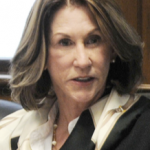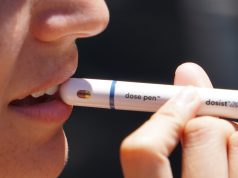The current economic crisis in Venezuela is having a strong ripple effect on the economic stability of Cuba, assert economists examining the issue.
Cuba’s lack of government reforms, shrinking financial support from Venezuela and stringent White House policies have had a stark effect on the economic structure of the country as a whole, says economist and University of Pittsburgh Professor Carmelo Mesa-Lago, at a recent seminar in Washington, D.C.
“We have projected that there will be another decline of $8 billion” in Venezuelan investment in Cuba in 2019, said Mesa-Lago. Essentially, Venezuela would be pulling out of investing in Cuba completely because continued support is untenable, he said.
There has been a decline in investment of 20 percent already this year, he said.
“It has also led to setbacks for the country’s emerging private sector,” said Peter Hakim of the Inter-American Dialogue. a Washington-based group that focuses on Latin American issues and U.S.-Latin America relations.
From a peak of $16 billion invested by Venezuela in Cuba in 2012 to half that in 2017, the percentage of Venezuelan aid in relation to Cuba’s gross domestic product has declined to just under eight percent from 22 percent in just five years.
After the Soviet Union collapsed, Cuba began to rely heavily on Venezuela for economic support. But that is becoming increasingly unsustainable as Venezuela – in the midst of an economic and political crises that has caused hyperinflation, economic depression and shortages of basic goods — grapples with its own internal problems, says Mesa-Lago.
“I have calculated that Venezuela has paid Cuban doctors (with subsidies via the island government) 27 times what an average Venezuelan doctor earns (now),” Mesa-Lago adds.
Mesa-Lago said that all tactics so far to mitigate migration from Cuba and develop the fledgling private sector have slowed significantly since the Venezuelan crisis, as well as attempts to formalize smaller businesses to spark competition and internal growth because there simply isn’t the economic infrastructure to make it happen.
“Cuba must deepen structural, economic reforms that began in the 1990s to create a market oriented, outward-looking economy.”

Vicki Huddleston, former chief of the U.S. Interests Section in Havana — before the Obama administration re-established relations with Havana and re-opened its embassy there – told the gathering that the current hardline stance the Trump White House maintains toward Cuba is worrisome and not helpful.
“Since (President Bill) Clinton we haven’t had a foreign policy president,” she said. A president who really understands and cares about foreign policy because we’re always talking about domestic policies to get the votes.
“When George W. Bush first came in, he nominated an assistant secretary who wasn’t approved (by the U.S. Senate), which meant that there was about a year and a half with only an acting assistant secretary,” said Huddleston. In cases where “there’s no political appointee in the chair, the Foreign Service officers who are acting (without Senate confirmation) cannot make major policy changes.”
Daniel Lederman is a reporter in the Caplin News’s Washington, D.C., Bureau.

































